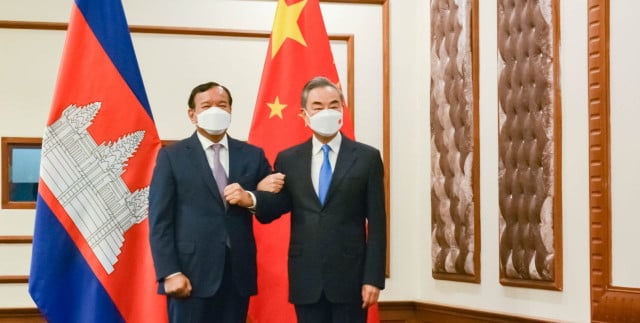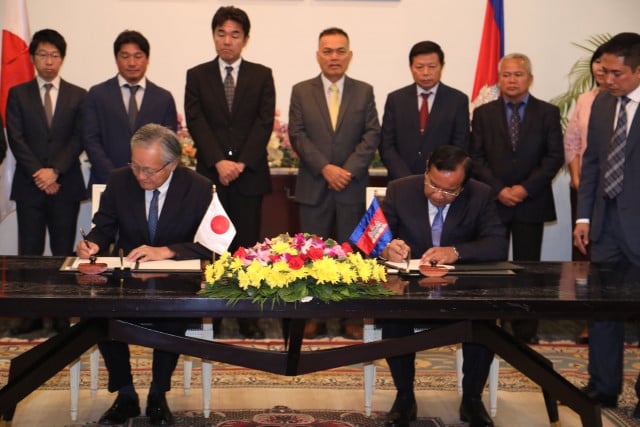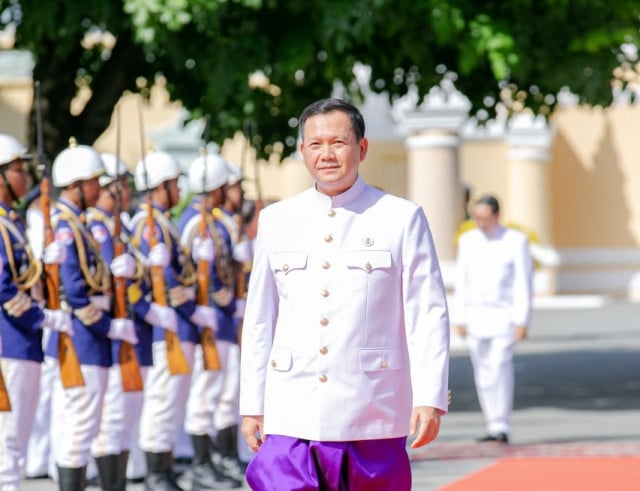China’s Mekong Power Draws Critics

- By Meng Seavmey
- July 11, 2022 9:05 PM
PHNOM PENH – Foreign ministers of countries along the Lankang/Mekong river have hailed the success of their meeting this month but critics say the discussions appear only to benefit China.
The meeting on July 3-4 in Myanmar, was under the auspices of Lancang-Mekong Cooperation, a format established in 2016 for cooperation between the states through which the river flows.
The Lancang is the name of the Chinese section. The Mekong flows through Cambodia, Laos, Myanmar, Vietnam and Thailand.
Cambodia’s Foreign Ministry said the meeting showed positive progress in outcomes over the past six years in political cooperation, economic development and social exchanges.
It said ministers had expressed appreciation for the growth of their partnership and pleasure with the results of the Five-Year Plan of Action.
Deputy Prime Minister Prak Sokhonn said during the meeting that the MLC had developed greatly. The establishment of institutions to support activities and programs had helped the sustainability of the MLC framework.
However Cambodian-American political scientist Ear Sophal said Mekong countries should use the forum to demand accountability from China for its repeated abuse of the downstream Mekong countries.
“But instead, it is just another confab. We have ASEAN for that. Why have more meetings when outcomes are unclear?” he said.
Sophal said the MLC’s weakness was that it appeared to be a tool for China to bring together the Mekong countries. The other countries did not benefit because China can use the MLC Special Fund to gain an advantage.
“It's a photo-op, certainly, and countries like Cambodia ask for money from special funds, and China praises the MLC members for progress in the fight against COVID. It seems like puff,” he said.
He added that holding the meeting in crisit-hit Myanmar was as wrong as it gets.
Since its inception, the MLC Special Fund has supported more than 600 projects in fields including water resources, agriculture, tourism, education, poverty reduction, health and women's empowerment.
At the meeting, the ministers praised the significant efforts the six countries had made to implement their projects.
Thong Mengdavid, a research fellow at Asian Vision Institute’s Mekong Centre for Strategic Studies, said Mekong-Lancang Cooperation focused on three pillars.
These were political and security issues, economic and sustainable development, and social, cultural and people's interactions. China focused mainly on constructing infrastructure and economic development.
Mengdavid said that the main challenges for Mekong-Lancang Cooperation could be grouped as internal and external.
Internal challenges include the lack of capacity and resources to effectively implement the blueprints under the three community pillars; the lack of effective and cohesive cross-sectoral collaborations and innovative multi-stakeholder partnership; and the need to reform the decision-making process to be quicker, especially in response to disasters and crises such as the COVID-19 pandemic and the Myanmar crisis.
External challenges were mainly geopolitical rivalries between superpowers; the decline of multilateralism and the rise of protectionism and populist politics; and the risks associated with war and conflicts as in the South China Sea, Myanmar and Taiwan.
Mengdavid said China, under Mekong-Lancang Cooperation, had committed to many regional development projects, including hydroelectric development and dam construction, economic development and increasing trade with China, Mekong water management, and information sharing, and the Health Silk Road initiative to help Mekong countries fight the COVID-19 pandemic.
“However, more efforts are required from China such as information and investment transparency, cultural and tourism promotion, joint non-traditional security cooperation, and more medical supplies to fight the pandemic,” he added.
Mengdavid said the MLC is expected to “consider youth exchanges, cultural and tourism cooperation in the framework to promote mutual understandings and friendships among people”.
Sustainable and inclusive development must be nurtured and enhanced through open and multilateral institutions to help narrow the development gap and support the building of the ASEAN community, he said.
ASEAN’s centrality should be reinforced to strengthen its role as the main facilitator of regional economic integration to nurture favorable conditions for social and economic recovery and development following the impact of COVID-19.
“And it should adhere consistently and firmly to open, inclusive and rules-based regionalism and multilateralism by encouraging competing powers to work together to address regional and global challenges of common concerns and interests, under the ASEAN-led mechanisms and other appropriate dialogue mechanisms,” he said.
Although not sure there is much to expect from the three main pillars, Ear Sophal believes that unless substantive cooperation takes place in which China accepts the Mekong countries as equal partners, the MLC will be a mechanism to placate and co-opt the Mekong countries.
“It all sounds great on paper, and kind of mini-BRI focused on the Mekong countries, but remember, without an equal partnership there can be no accountability,” he said.















